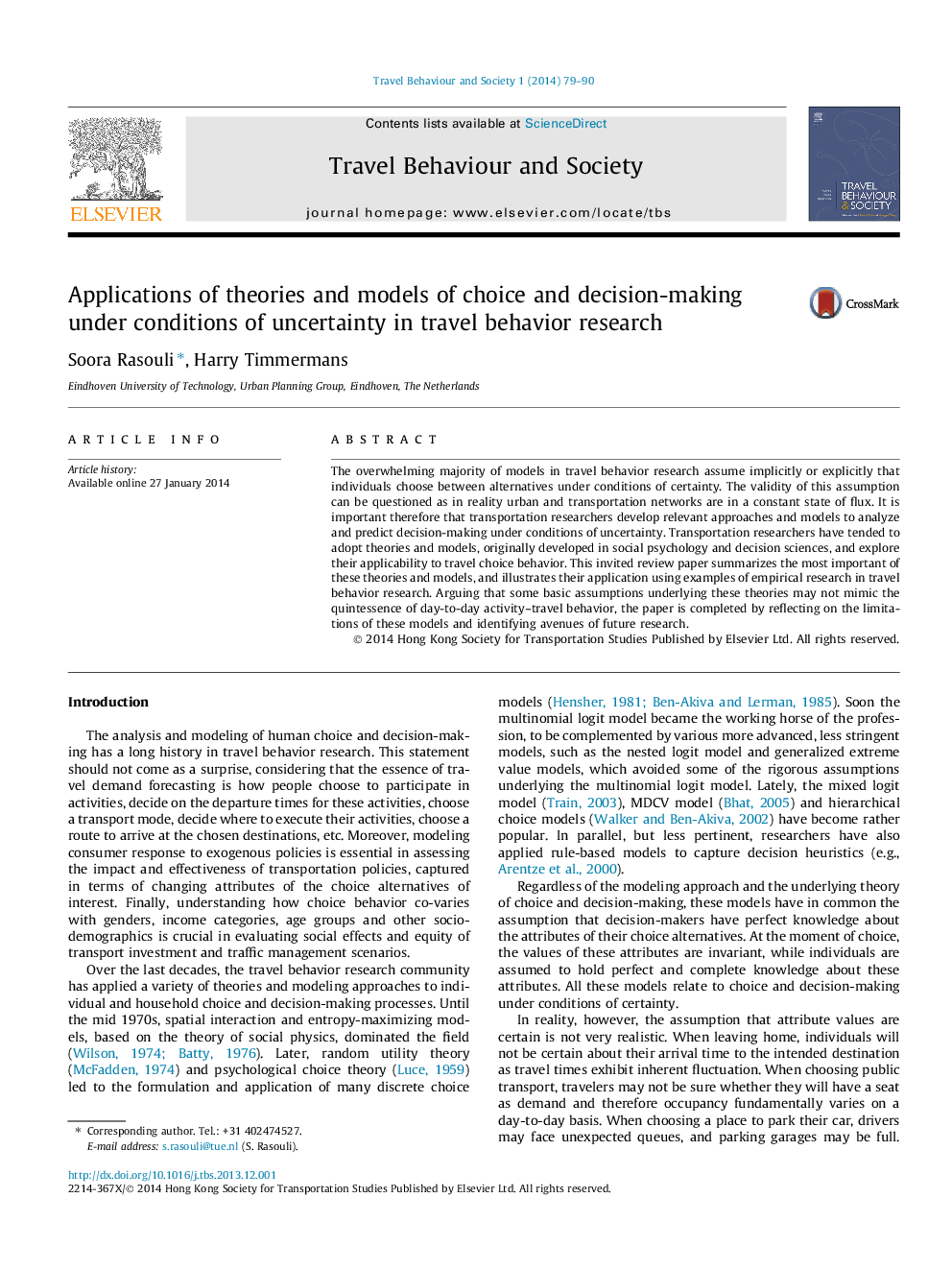| کد مقاله | کد نشریه | سال انتشار | مقاله انگلیسی | نسخه تمام متن |
|---|---|---|---|---|
| 141314 | 162853 | 2014 | 12 صفحه PDF | دانلود رایگان |
The overwhelming majority of models in travel behavior research assume implicitly or explicitly that individuals choose between alternatives under conditions of certainty. The validity of this assumption can be questioned as in reality urban and transportation networks are in a constant state of flux. It is important therefore that transportation researchers develop relevant approaches and models to analyze and predict decision-making under conditions of uncertainty. Transportation researchers have tended to adopt theories and models, originally developed in social psychology and decision sciences, and explore their applicability to travel choice behavior. This invited review paper summarizes the most important of these theories and models, and illustrates their application using examples of empirical research in travel behavior research. Arguing that some basic assumptions underlying these theories may not mimic the quintessence of day-to-day activity–travel behavior, the paper is completed by reflecting on the limitations of these models and identifying avenues of future research.
Journal: Travel Behaviour and Society - Volume 1, Issue 3, September 2014, Pages 79–90
